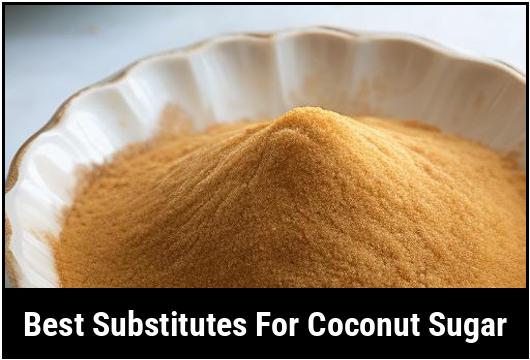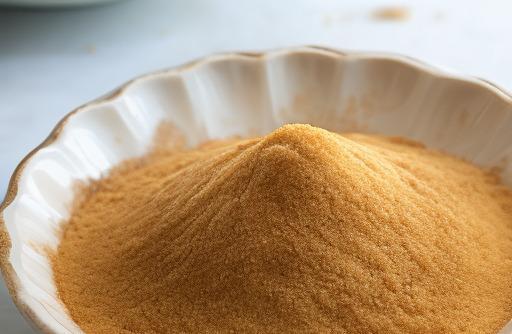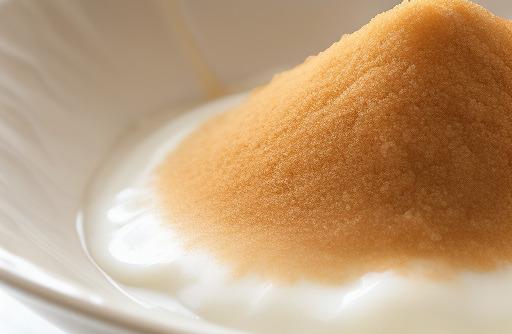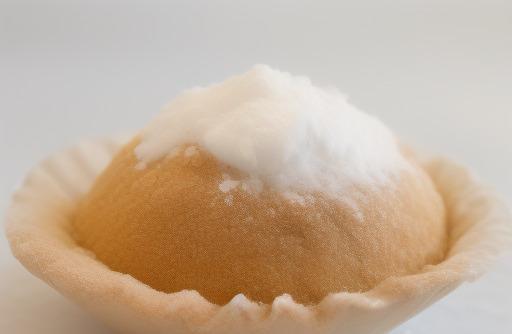- You are here:
- Home »
- Food Substitutes
- » Best Substitutes For Coconut Sugar
Best Substitutes For Coconut Sugar

Coconut sugar has gained popularity in recent years as a natural alternative to refined sugar. It is derived from the sap of coconut palm trees and has a rich caramel-like flavor. However, if you find yourself in a situation where you don’t have any coconut sugar on hand, or you want to explore other options, there are several substitutes available that can provide similar flavor profiles and sweetness levels. This article will guide you through the best substitutes for coconut sugar and how to use them in your recipes.
Key Takeaways
- Coconut sugar is a natural alternative to refined sugar with a caramel-like flavor.
- If you run out of coconut sugar or want to try different options, there are various substitutes available.
- Brown sugar, maple syrup, honey, date sugar, and stevia are some of the best substitutes for coconut sugar.
- When choosing a substitute, consider flavor profile, sweetness level, and the health benefits you desire.
- Experiment with different substitutes to find the one that best suits your taste preferences and dietary needs.
Why You Need A Substitute For Coconut Sugar
There are several reasons why you might need a substitute for coconut sugar. Perhaps you ran out of it and need a replacement ingredient for a recipe. Or maybe you have a dietary restriction, such as a low sugar or low glycemic diet, which requires alternatives to coconut sugar. Additionally, some people may simply prefer the taste of other sweeteners, or they are looking to diversify their recipe repertoire. Whatever the reason, having knowledge about suitable substitutes can help you continue baking and cooking without compromising flavor and texture.
Types Of Substitutes For Coconut Sugar

When looking for substitutes for coconut sugar, it’s important to consider its flavor profile and sweetness level. Many alternative sugars can provide a similar caramel-like taste, while others offer their distinctive flavors. Here are some common substitutes for coconut sugar:
-
Brown Sugar: Brown sugar is a commonly used substitute for coconut sugar due to its similar caramel flavor and moisture content. It is made by combining refined white sugar with molasses, resulting in a soft and moist texture. The substitution ratio for brown sugar is 1:1, meaning you can use the same amount of brown sugar as coconut sugar in your recipes.
-
Maple Syrup: Maple syrup is a natural sweetener produced from the sap of maple trees. It offers a rich and earthy flavor that complements various dishes. It is an excellent substitute for coconut sugar, especially in recipes that require a liquid sweetener. To replace coconut sugar with maple syrup, use ¾ cup of syrup for every 1 cup of coconut sugar.
-
Honey: Honey is another liquid sweetener that can be used as a coconut sugar substitute. It has a distinct floral and sweet taste, which can add a unique flavor profile to your recipes. Replace coconut sugar with honey using a 1:1 ratio. Keep in mind that honey is sweeter than coconut sugar, so you may need to adjust the amount accordingly.
-
Date Sugar: Date sugar is made by grinding dried dates into a fine powder. It offers a rich and caramel-like flavor, making it an excellent replacement for coconut sugar in baked goods. Date sugar can be used in a 1:1 ratio as a substitute for coconut sugar.
-
Stevia: Stevia is a natural, zero-calorie sweetener derived from the Stevia rebaudiana plant. It is significantly sweeter than coconut sugar, so you’ll need to use it sparingly. Stevia is usually available in powdered or liquid form, and a little goes a long way. Follow the manufacturer’s instructions for the appropriate conversion ratio when replacing coconut sugar with stevia.
Best Substitutes For Coconut Sugar
Now that you are familiar with the different types of substitutes available, let’s explore the best substitutes for coconut sugar in more detail:
1. Brown Sugar
Brown sugar is an excellent substitute for coconut sugar due to its similar flavor and moisture content. Its caramel-like taste adds depth and richness to baked goods and sweet sauces. Use an equal amount of brown sugar as the recipe calls for coconut sugar. Remember to pack the brown sugar when measuring it, as this will ensure you get the correct sweetness and texture.
2. Maple Syrup
Maple syrup provides a distinct flavor that complements a variety of recipes. It works well as a substitute for coconut sugar in recipes where a liquid sweetener is required. Its natural sweetness and viscosity make it an ideal choice for syrups, glazes, and marinades. For every cup of coconut sugar, use ¾ cup of maple syrup. Adjust the recipe’s liquid ingredients accordingly since maple syrup adds moisture.
3. Honey
Honey offers a unique floral taste that can enhance the flavor of baked goods and beverages. As a substitute for coconut sugar, use honey in a 1:1 ratio. Keep in mind that honey is sweeter than coconut sugar, so reduce other sweet ingredients in your recipe if desired. When using honey, it’s essential to adjust the baking temperature by reducing it by 25 degrees Fahrenheit (14 degrees Celsius) to prevent excessive browning.
4. Date Sugar
Date sugar is an excellent alternative for coconut sugar, especially in baking. It has a rich and caramel-like flavor that enhances the taste of cookies, brownies, and muffins. Substitute coconut sugar with date sugar in a 1:1 ratio for best results. However, note that date sugar doesn’t dissolve, so it’s not suitable for recipes that require a smooth texture.
5. Stevia
Stevia is a zero-calorie sweetener that provides intense sweetness without the calories or carbohydrates found in coconut sugar. It is available in powdered or liquid form and is significantly sweeter than coconut sugar. Use stevia sparingly as a substitute, following the manufacturer’s instructions for the appropriate conversion ratio. It works best in recipes where the bulk of the sweetener comes from other ingredients, such as fruits.
Choosing The Right Substitute For Coconut Sugar

When selecting a substitute for coconut sugar, it’s important to consider the flavor profile, sweetness level, and health benefits you desire. Each alternative sweetener has its unique taste, so choose the one that best complements your recipe. Additionally, if you have dietary restrictions or health concerns, you may want to opt for substitutes that align with your needs. For example, if you are following a low glycemic diet, you might choose date sugar or stevia as they have minimal impact on blood sugar levels. Experiment with different substitutes to find the one that suits your taste preferences and dietary requirements.
Pro Tip: When substituting coconut sugar with a liquid sweetener like maple syrup or honey, remember to adjust the liquid amount in your recipe to maintain the desired consistency.
Cooking With Substitutes For Coconut Sugar
Cooking and baking with substitutes for coconut sugar can often be a seamless process. However, keep in mind that each substitute may affect the taste, texture, and moisture level of your dish differently. Here are a few tips to help you navigate cooking with alternative sweeteners:
-
Flavor Adjustments: Since each substitute has its unique taste profile, it may alter the flavor of your dish slightly. Consider the flavor implications of your chosen substitute and how it will blend with other ingredients in the recipe. For example, maple syrup might lend a slight maple flavor to your dish, which can be desirable in pancakes but may overpower delicate flavors.
-
Moisture Content: Some substitutes, such as honey or maple syrup, add moisture to your recipes. Adjust the liquid ingredients or baking times accordingly to ensure the desired texture and consistency. It may be necessary to reduce other liquid ingredients or increase the baking time slightly to compensate for the additional moisture.
-
Browning and Caramelization: Coconut sugar contributes to browning and caramelization, giving a golden color to baked goods. When using a substitute, particularly liquid sweeteners like maple syrup or honey, the browning may occur more quickly. Keep an eye on your dish and adjust the baking temperature and time if needed to prevent excessive browning or burning.
-
Nutritional Impact: Consider the nutritional differences between coconut sugar and its substitutes. Some alternatives, like stevia, have minimal impact on blood sugar levels and caloric content. If you are aiming for a lower-calorie or low-glycemic recipe, choose a substitute that aligns with your dietary goals.
Recipes Using Substitutes For Coconut Sugar

Now that you are familiar with the different substitutes available, let’s explore a few recipes where these alternatives can be used:
1. Maple Glazed Carrots
Ingredients:
- 1 pound of baby carrots
- 2 tablespoons of butter
- 2 tablespoons of maple syrup
- Salt and pepper to taste
Instructions:
- Steam the baby carrots until tender.
- Heat a skillet over medium heat and melt the butter.
- Add the maple syrup, salt, and pepper to the skillet and stir until well combined.
- Add the steamed carrots to the skillet and toss to coat them with the glaze.
- Cook for an additional 2-3 minutes until the carrots are glazed and caramelized.
- Serve hot as a delicious side dish.
2. Honey Oatmeal Cookies
Ingredients:
- 1 cup of all-purpose flour
- 1 cup of old-fashioned oats
- ½ teaspoon of baking soda
- ½ teaspoon of salt
- ½ cup of butter, softened
- ½ cup of honey
- 1 teaspoon of vanilla extract
- 1 egg
Instructions:
- Preheat the oven to 350°F (175°C) and line a baking sheet with parchment paper.
- In a medium bowl, combine the flour, oats, baking soda, and salt. Set aside.
- In a separate large bowl, cream together the butter and honey until light and fluffy.
- Add the vanilla extract and egg to the butter mixture and mix well.
- Gradually add the dry ingredients to the wet ingredients, mixing until well combined.
- Drop rounded tablespoons of dough onto the prepared baking sheet, leaving space between each cookie.
- Bake for 10-12 minutes or until golden brown.
- Remove from the oven and let cool on the baking sheet for a few minutes before transferring to a wire rack to cool completely.
Storage And Shelf Life Of Substitutes
The storage and shelf life of substitutes for coconut sugar can vary depending on the type of sweetener. Here are some general guidelines:
- Brown Sugar: Store brown sugar in an airtight container to prevent it from hardening. It can be kept at room temperature for several months.
- Maple Syrup: Keep maple syrup refrigerated after opening to maintain its freshness. It can last up to a year when stored properly.
- Honey: Store honey in a sealed jar at room temperature. It has an indefinite shelf life, but it may crystallize over time. If this happens, simply warm up the honey bottle in a warm water bath until the crystals dissolve.
- Date Sugar: Date sugar has a long shelf life and can be stored in an airtight container at room temperature for several months.
- Stevia: Follow the manufacturer’s instructions for storage guidelines, as powdered and liquid forms of stevia may have different requirements.
Conclusion
When you find yourself without coconut sugar or simply want to try something different, there are many substitutes available that can provide similar flavors and sweetness levels. Brown sugar, maple syrup, honey, date sugar, and stevia are among the best alternatives for coconut sugar, each offering their distinct taste profiles. Consider the flavor, sweetness, and health benefits you desire when choosing a substitute and experiment with different options to find the perfect fit for your recipes. With these substitutes, you can continue to enjoy your favorite dishes and desserts without compromising on taste or quality.
Remember to adjust the liquid amount when using liquid sweeteners like maple syrup or honey to maintain the desired consistency.
FAQS
What Are Some Popular Alternatives To Coconut Sugar?
Some of the best substitutes for coconut sugar include maple syrup, honey, agave nectar, date sugar, and brown rice syrup.
Is There Any Difference In Taste Between Coconut Sugar And Its Substitutes?
Yes, each substitute has its unique flavor profile. For instance, maple syrup is rich and earthy, while honey has a distinct floral taste. Agave nectar is mild and sweet, and brown rice syrup has a malty flavor. Date sugar has a caramel flavor.
Are There Any Health Benefits In Choosing An Alternative To Coconut Sugar?
Yes, each substitute has different health benefits. For example, honey has antibacterial properties that can boost the immune system. Maple syrup is a good source of antioxidants, and agave nectar has a low glycemic index, making it ideal for people with diabetes.
Can You Use Coconut Sugar Substitutes In All Recipes That Call For Coconut Sugar?
Yes, in general, you can use these substitutes in most recipes that require coconut sugar. However, keep in mind that it can affect the final flavor and texture of the dish, so it’s best to experiment with different substitutes to find the best one for your recipe.
Where Can I Find Coconut Sugar Substitutes?
Coconut sugar substitutes are readily available in health food stores and online retailers. Be sure to check the ingredients and read reviews before purchasing to ensure you are getting a high-quality product.
Sources
About the Author Jenny
I'm Jenny, a housewife with an unwavering passion for food. My culinary journey began with my grandmother's kitchen, and it's now a full-fledged food blog. I've turned my love for cooking into a creative outlet, sharing recipes and stories with a global community of fellow food enthusiasts. It's proof that being a housewife can also mean pursuing your passions and savoring life's delectable moments.
